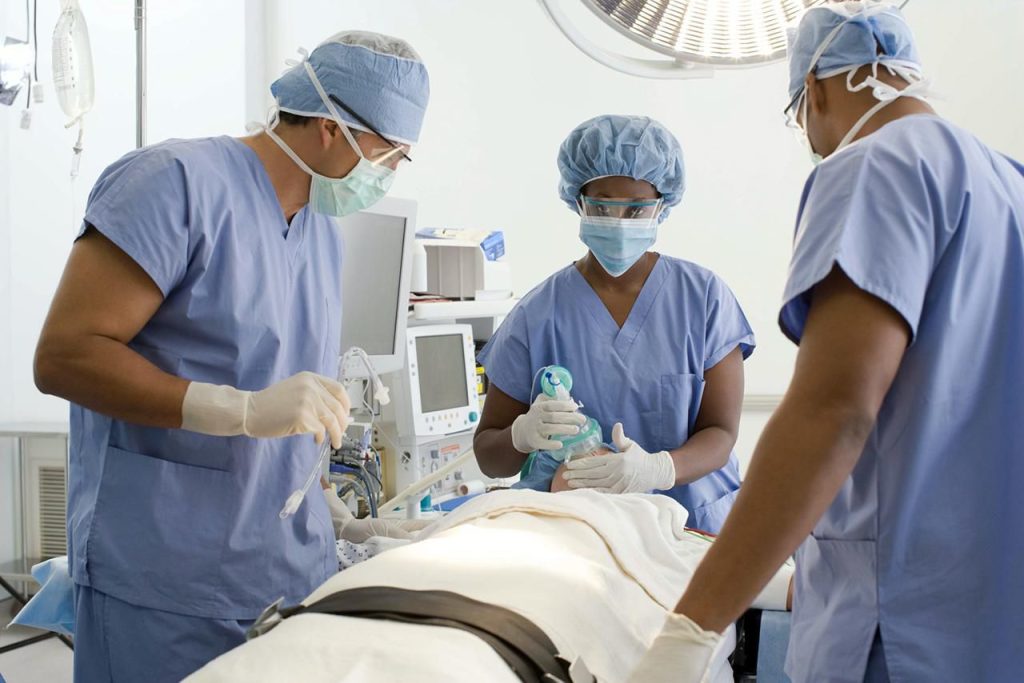What is Gastrointestinal Surgery?
GI Gastrointestinal surgical procedure The GI Gastrointestinal Surgery is the treatment option for ailments that affect the area of the body that assists in digestion. The GI procedure removes tumors and any damaged area of the gastrointestinal tract, like the pancreas or the intestine. The GI surgery can also be used to address issues like chronic inflammatory bowel disease severe acid reflux, hernia, and numerous other chronic diseases.
Gastrointestinal surgeries can be classified into two groups according to the components of the gastrointestinal tract. They are that are included: upper GI surgical procedures for gastrointestinal disorders and lower surgical gastrointestinal.
Upper Gastrointestinal surgery:
Upper gastrointestinal surgery is an operation that is focused on the upper part of the digestive tract. This is the case for gallbladders and pancreas, liver duodenum, esophagus, and stomach.
A doctor might recommend upper stomach (GI) surgery when the patient is experiencing symptoms like abdominal pain, bloating, difficulty swallowing, heartburn as well as acid regurgitation.
Lower gastrointestinal surgery:
The lower surgical GI concentrates specifically on the lower part of the gastrointestinal tract. This includes the colon, small intestine as well as the rectum and the anus.
In each of these intestines produce distinct signs and symptoms, which are then treated in a different way. It is therefore essential to seek out advice from an established hospital if you experience a new issue or discover that something isn’t right. Any rectal bleeding that has increased or abdominal pain, any change in bowel habits or unproven weight loss needs to be examined immediately. Any new swelling or lump should be examined immediately by a medical professional.
What Gastrointestinal Disorders Should be treated with GI Surgery?
Diverticular Disorders:
A chronic condition in pockets or pouches develop within the large intestine creating chronic discomfort. This condition is also referred to as diverticulosis. In the beginning, doctors will want to treat it with surgery. But, if it becomes chronic or inflamed surgeon will need to perform an bowel resection in order to eliminate the swelling part of the intestinal tract.
Rectal prolapse:
A grave condition where a portion of the intestine falls across the anus. Gastrointestinal surgeons manage such ailments through surgical procedures.
Loss of weight:
While it is possible to have a variety of reasons to lose weight and various kinds of surgeries are done when it’s due to an inflammation of the digestive tract, such as gastroenteritis or intestinal diseases.

How is Gastrointestinal Surgery Done?
Surgeons utilize minimally invasive surgeries to treat gastrointestinal disorders whenever it is possible, based on the specific situation of every patient. There are a variety of surgical procedures including:
Laparoscopic procedure:
In laparoscopy, an instrument called a laparoscope can be inserted through a tiny incision so that the surgeon can perform surgery. It is inserted by the surgeon through a tiny cut to access the surgical area.
Endoscopic Operation:
Endoscopy uses an endoscope which is inserted into the nose, mouth, or another natural opening in the body to allow access to the area being treated. It is the surgeon who inserts tiny instruments inside the endoscope in order to perform the procedure.
Robotic surgery:
Using computers which is controlled by the surgeon, the surgeon operates the mechanical arm that holds both the surgical instrumentation and camera for laparoscopic surgery. The consoles used by surgeons provide the highest resolution, magnified 3D images on the surgery site. Robotic hands provide a greater variety of motions that provide more flexibility and versatility for complicated and intricate procedures.
How to Prevent Gastrointestinal Diseases?
Many rectal and colon illnesses can be avoided or diminished by living good health, following healthy bowel habits and much more.
To prevent gastrointestinal illness, it is necessary to make lifestyle modifications:

Consume healthier:
It’s about eating more leafy green fruits, vegetables as well as nuts and seeds. Also, avoid carbonated drinks like soda and water in bottles, along with spicy or fried meals.
Maintain an ideal body weight:
Obesity or overweight is the most likely cause of many diseases, including those in the list of gastrointestinal conditions. This is due to inflammation in various organs of the internal as well as a decline in immunity.
Get a good night’s sleep:
Several digestive disorders have been associated with people who suffer from insomnia chronically particularly those suffering from IBS. When you rest, your body is working to correct all the issues within your body.
Don’t allow stress to control your life:
There are a myriad of reasons that could create stress for you. Stress and anxiety can trigger symptoms of indigestion and lead you to feel stomach cramps. Furthermore each aspect of digestion is controlled by your nervous system that reacts to stress. This is why it’s crucial to identify the stress relief which is the most effective for your needs.
Drinking plenty of water:
Drinking enough water is essential to help move food items through in your digestion and to keep your digestive tract flexible. Dehydration is therefore associated with a myriad of digestive issues. It’s also among the main causes of constipation that is chronic, which can increase the risk of hemorrhoids.
Changes in your lifestyle and eating habits is usually the first step toward better digestion. If you’re still having digestive issues, visit the top hospital in India to treat.








